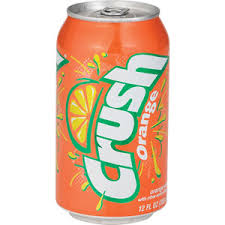crush
英 [krʌʃ]
美 [krʌʃ]
- vt. 压碎;弄皱,变形;使…挤入
- vi. 挤;被压碎
- n. 粉碎;迷恋;压榨;拥挤的人群
使用频率:

记忆方法
1. 谐音“垮了兮!垮啦兮!”
中文词源
crush 压碎
拟声词。
英语词源
- crush
-
crush: [14] The emergence of crush is something of a mystery. English borrowed it from Old French croissir, but it is not clear where Old French got it from. Some consider it to be of Romance origin, postulating a hypothetical Vulgar Latin *cruscīre to account for it, but others suggest that Old French may have borrowed it from Germanic, pointing to the similarity of Middle Low German krossen ‘crush’.
- crush (v.)
- mid-14c., from Old French cruissir (Modern French écraser), variant of croissir "to gnash (teeth), crash, break," perhaps from Frankish *krostjan "to gnash" (cognates: Gothic kriustan, Old Swedish krysta "to gnash"). Figurative sense of "to humiliate, demoralize" is c. 1600. Related: Crushed; crushing. Italian crosciare, Catalan cruxir, Spanish crujirare "to crack" are Germanic loan-words.
- crush (n.)
- 1590s, "act of crushing," from crush (v.). Meaning "thick crowd" is from 1806. Sense of "person one is infatuated with" is first recorded 1884; to have a crush on is from 1913.
权威例句
- 1. Put both vegetables into a bowl and crush with a potato masher.
- 把这两样蔬菜都放进一个碗里,然后用捣土豆器把它们捣碎。
- 2. Franklin and his thirteen-year-old son somehow got separated in the crush.
- 富兰克林和他13岁的儿子在人群中被挤散了。
- 3. Every-where he went he was mobbed by a crush of fans.
- 他所到之处都有成群的歌迷簇拥着他。
- 4. The government is trying to crush a secessionist movement.
- 政府正试图镇压一场分离运动。
- 5. Three people were asphyxiated in the crush for last week's train.
- 在上周的火车撞车事故中有3人窒息死亡。